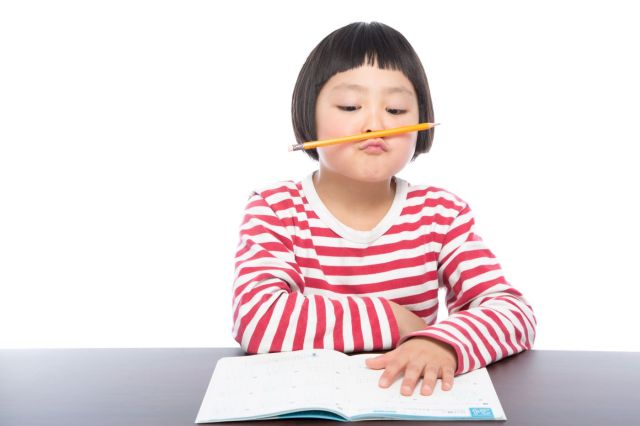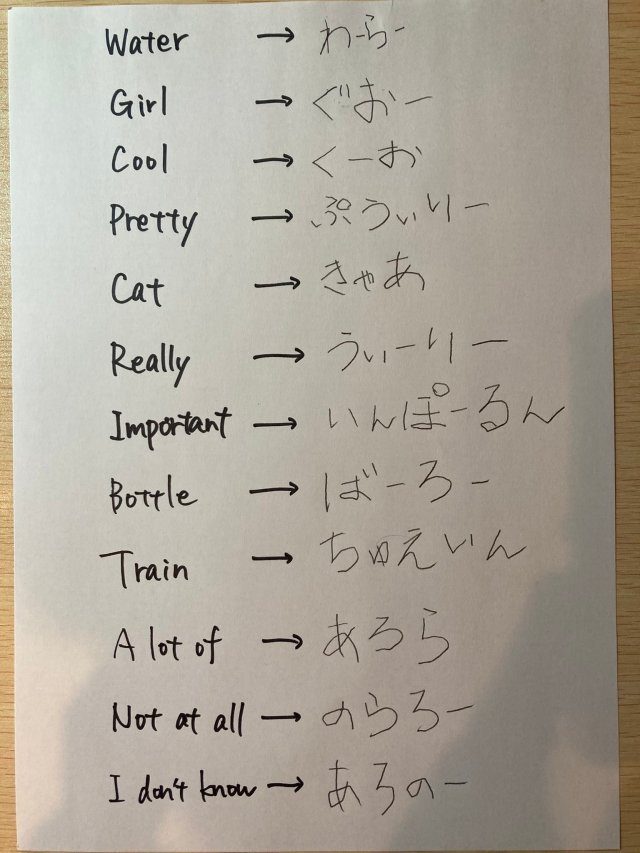Japanese elementary school student teaches us all how to pronounce English like a native speaker

Sometimes the youngest students can be the brightest learners.
When you’re learning a new language, one of the hardest things is mastering it pronunciation. While it can be tempting to simply pronounce new words with the same accent and intonation that you would use in your native language, if you really want to blend in with the locals you need to do extra groundwork, and that can sometimes mean Rewrite what you learned in the textbook…literally.
It’s a lesson in language learning that got everyone’s attention on Twitter recently when the English teachers were over there @KoalaEnglish180 shared the following tweet with the message:
▼ “The ears of a primary school student hearing English for the first time are amazing. Appreciate that intuition.”
初めて英語を聞いた小学生の耳がすごい。この感覚を大切にしてほしいな。 pic.twitter.com/CcZThucAvm
— こあたん🇦🇺こあらの学校 (@KoalaEnglish180) July 16, 2022
As the photo shows, the elementary school student who heard these English words for the first time had no prior knowledge of how they are usually translated into Japanese, so easy wrote to them as they heard them. As a result, The pronunciation is much closer to the way a local would pronounce the words and totally different from the students in Japan who usually learn to pronounce them in school.
If we take a closer look at the elementary school student’s pronunciation list, we see that the first word is “water‘, is written as ‘わーらー’, which is pronounced ‘wara“. In everyday scenarios, many native speakers omit the hard “t” in “water.” So if you said “waaraa” quickly, it wouldn’t sound that different than most people would normally say “water” when pronouncing the “r” the way Japanese speakers do, with the tongue touching the tip of the roof of the mouth.
However, once you start learning English in a Japanese school, the pronunciation for “water” will become “ウォーター”or if you use hiragana like the elementary school student who hasn’t learned katakana syllabary yet, “うおーたー”. This is pronounced “uootaa,” which makes sense in Japanese because “u” is used for other words that start with “w,” like “wood” (“uu-do”), but the hard “u” sound is something native speakers don’t use when saying “water,” making for a very Japanese pronunciation of the word.
▼ When an elementary school student knows more about the real world than a textbook.
If we look at the other words, we have:
girl — usually pronounced “ガール” (“gaaru”) in Japanese – written as “ぐおー” (“グオー”), pronounced “guoo‘, with a long ‘o’ at the end
Cool — usually pronounced “クール” (“kuuru”) in Japanese – written as “くーお” (“クオー”), pronounced “kuoo‘, with a long ‘o’ at the end
pretty – usually pronounced “プリティ” (“puriti”) in Japanese – written as “ぷうぃりー”, pronounced “Puirii‘, causing the hard ‘t’ sound to drop again
Cat – usually pronounced “キャット” (“kyatto”) in Japanese – written as “きゃあ”, pronounced “kyaa”, again without the hard “t”
For real — usually pronounced “リアリー” (“riarii”) in Japanese – written as “うぃーりー”, pronounced “uiirii”
The last six words are:
Important — pronounced “インポータント” (“inpootanto”) in Japanese – written as “いんぽーるん”, pronounced “impoorun”, with long “o” and “u” sounds
Bottle — pronounced “ボトル” (“botoru”) in Japanese – written as “ぼーろー”, pronounced “boorooo”, with long “o” sounds
train – pronounced “トレイン” (“torein”) in Japanese – written as “ちゅえいん”, pronounced “chuein”
Many – pronounced “アロットオブ” (“a rotto obu”) in Japanese – written as “あろら”, pronounced “arora”
Not at all – Pronounced “ノットアットオール” (“notto atto ooru”) in Japanese – Written as “のらろー”, pronounced “noraroo”, with a long “o” sound at the end
I do not know – Pronounced “アイドントノウ” (“ai donto noo”) in Japanese – Written as “あろのー”, pronounced “aronoo”, with a long “o” sound at the end
We’re particularly in love with the pronunciation of the last four on the list, which really grab the twang of a native English speaker. We could even use the latter in the office, because “arono” would save us a lot of time and energy when Mr. Sato asks us to take part in his escapades.
It’s amazing to see how accurate a primary school student’s listening skills can be when it comes to producing natural-sounding English pronunciation. We hope they will remember this lesson as they grow older, and may we all use an elementary school student’s intuition in our own language studies!
Source: Twitter/@KoalaEnglish180 about Jin
Picture above: Pakutaso
Insert images: Pakutaso, Twitter/@KoalaEnglish180
● Would you like to be informed about the latest articles from SoraNews24 as soon as they are published? Follow us on Facebook and Twitter!

